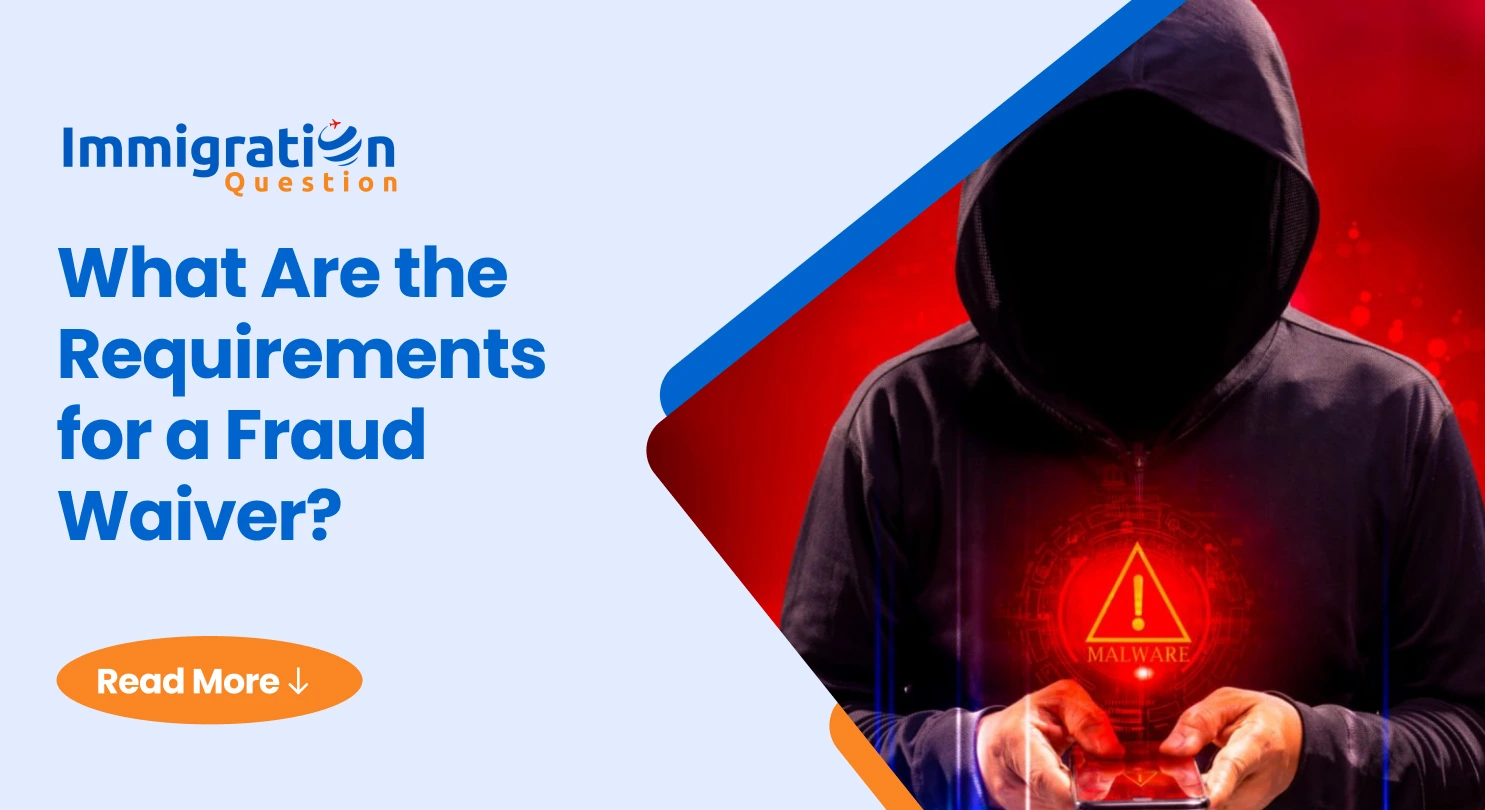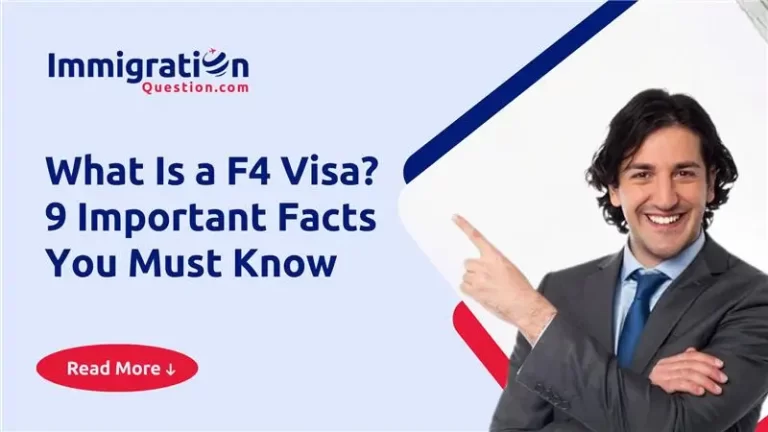Navigating the U.S. immigration system can be challenging, especially if you are dealing with accusations of fraud or misrepresentation. If you have been deemed inadmissible due to providing false information on your immigration application, you may still have an opportunity to obtain a fraud waiver (Form I-601). A fraud waiver allows you to overcome the inadmissibility bar and continue pursuing your immigration goals.
However, securing a fraud waiver is a complex process that requires strong legal arguments, supporting evidence, and a clear understanding of U.S. immigration law. In this guide, we will explore the requirements for a fraud waiver, how an Immigration Question attorney can help, and key immigration questions to ask during your consultation.
What Is a Fraud Waiver?
A fraud waiver, also known as a waiver for fraud or misrepresentation, is a legal remedy available under Section 212(i) of the Immigration and Nationality Act (INA). This waiver allows certain individuals who have been found invalid due to fraud or willful misrepresentation to request forgiveness and continue their immigration process.
If granted, the fraud waiver removes the grounds of inadmissibility and allows applicants to:
- Obtain a visa
- Adjust their status to lawful permanent residency (green card)
- Avoid deportation and remain in the United States
However, not all applicants qualify for a fraud waiver, and the decision ultimately lies with the U.S. Citizenship and Immigration Services (USCIS) or an immigration judge.
When Do You Need a Fraud Waiver?
You may require a fraud waiver if you have been deemed inadmissible for:
- Lying on an immigration application
- Presenting false documentation or identity information
- Misrepresenting material facts to obtain a visa or green card
- Using fraudulent marriage or employment information
If any of these factors apply to your case, it is essential to seek Immigration Question advice to determine your eligibility for a fraud waiver and take the necessary steps to rectify your situation.
Who Qualifies for a Fraud Waiver?
To qualify for a fraud waiver, you must demonstrate that:
- You Have a Qualifying Relative – You must have a U.S. citizen or lawful permanent resident spouse or parent who would experience “extreme hardship” if you are denied entry or removed from the United States. Children are not considered qualifying relatives for this waiver.
- Denial Would Cause Extreme Hardship – You must prove that denying your immigration application would cause extreme hardship to your qualifying relative(s). This hardship must go beyond the usual emotional or financial distress caused by family separation.
- You Deserve a Favorable Exercise of Discretion – Immigration authorities have the discretion to approve or deny the waiver. You must demonstrate that you are genuinely remorseful, have reformed your behavior, and deserve a second chance.
What Constitutes Extreme Hardship?
Proving extreme hardship is a critical part of obtaining a fraud waiver. U.S. immigration authorities define extreme hardship as a hardship that is:
- Greater than the normal difficulties of family separation
- Beyond what would typically be expected if a family member were removed or denied entry
- Emotional, financial, medical, or psychological hardship that significantly impacts the qualifying relative’s life
Examples of extreme hardship include:
- Severe medical conditions requiring specialized treatment in the U.S.
- Financial collapse or inability to support the family if the applicant is denied entry
- Safety concerns if the family is forced to relocate to the applicant’s home country
- Educational disruption for minor children if they must move abroad
How an Immigration Question Attorney Can Help with Your Fraud Waiver
Securing a fraud waiver requires a compelling case supported by strong evidence and persuasive legal arguments. An Immigration Question attorney can guide you through the process and increase your chances of success. Here’s how:
- Evaluating Your Eligibility
Not everyone qualifies for a fraud waiver. Your attorney will assess your situation to determine:
- If you meet the legal requirements for the waiver
- Whether you have a qualifying relative who would suffer extreme hardship
- The strength of your case and potential outcomes
- Gathering Strong Supporting Evidence
A successful fraud waiver application requires detailed and credible evidence. Your attorney will help gather:
- Medical records demonstrating health conditions that require treatment in the U.S.
- Psychological evaluations to show emotional hardship
- Financial documents proving economic dependency
- Opinions and affidavits from family and community members
- Crafting a Compelling Waiver Application
An experienced attorney will ensure that your waiver application is well-organized, legally sound, and persuasive. They will:
- Write a detailed personal statement explaining the circumstances of the fraud or misrepresentation
- Highlight the extreme hardship faced by your qualifying relative(s)
- Present evidence in a format that meets USCIS standards
- Preparing You for Your Interview
If required, you may need to attend an interview with USCIS or an immigration judge to discuss your fraud waiver application. Your attorney will:
- Help you prepare for possible questions
- Ensure that your testimony is consistent and clear
- Provide guidance on how to respond to inquiries about your case
- Representing You in Immigration Court
If your fraud waiver case is referred to immigration court, your attorney will:
- Represent you before the judge
- Present compelling legal arguments
- Cross-examine witnesses and challenge evidence if necessary
Step-by-Step Process for Filing a Fraud Waiver
Here’s a breakdown of the steps involved in filing a fraud waiver:
Step 1: Consultation and Case Assessment
Schedule an Immigration Question consultation to discuss your case and determine your eligibility for a fraud waiver.
Step 2: Gather Evidence and Documentation
Your attorney will help collect supporting documents to demonstrate extreme hardship and prove your eligibility.
Step 3: Submit Form I-601
File Form I-601, Application for Waiver of Grounds of Inadmissibility, along with all necessary supporting evidence.
Step 4: Attend an Interview or Hearing (if required)
If required, attend an interview or hearing where you will explain your case and answer immigration questions.
Step 5: Await a Decision
USCIS will review your application and supporting evidence before making a decision. If approved, you can continue with your immigration process.
Frequently Asked Immigration Questions About Fraud Waivers
-
What Is the Processing Time for a Fraud Waiver?
Processing times vary, but most fraud waiver applications take between 12 to 18 months for a decision.
-
Can I Apply for a Fraud Waiver While Outside the U.S.?
Yes. You can apply for a fraud waiver from outside the United States if you are applying for an immigrant visa.
-
What Happens If My Fraud Waiver Is Denied?
If your fraud waiver is denied, you may be able to appeal the decision or explore other legal remedies.
-
Can I Include My Family in My Fraud Waiver Application?
No. The fraud waiver is specific to the individual applying and cannot be used to waive inadmissibility for family members.
-
Do I Need a Lawyer to File a Fraud Waiver?
While you can file a fraud waiver on your own, having an Immigration Question attorney significantly improves your chances of success.
Take the First Step Toward Securing Your Future
If you are facing inadmissibility due to fraud or misrepresentation, don’t navigate the process alone. Get Immigration Question advice today to improve your chances of obtaining a fraud waiver.
Visit ImmigrationQuestion.com to schedule a consultation and take control of your immigration future.
Let Immigration Questions guide you through the process with confidence and clarity!











